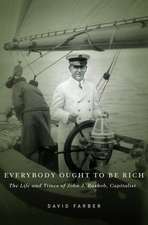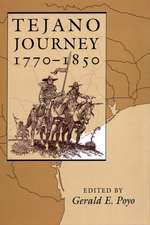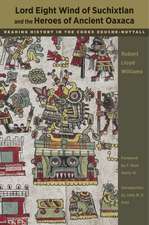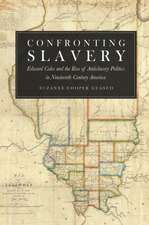German Buenos Aires, 1900–1933: Social Change and Cultural Crisis: Texas Pan American Series
Autor Ronald C. Newtonen Limba Engleză Paperback – oct 1977
In the three decades before World War I, Argentina became a major food-producing and exporting country. Through the port of Buenos Aires was funneled the bulk of the Pampas’ foodstuff and fiber in one direction and Europe’s capital, technology, and surplus labor in the other. The German speakers made up one of the smaller Western European communities within the Argentine metropolis, but their cultural and economic influence was far out of proportion to their numbers. Based in a large and occupationally diverse middle class, the German community was represented at all social levels. Newton analyzes the experience of this well-demarcated group during a period of rapid demographic growth and increasing pressure to assimilate. He constructs working hypotheses that may be applied and refined in further investigations.
The book draws substantially on materials from within the Buenos Aires German community—newspapers, memoirs, the records of associations and welfare agencies—to reconstruct its intense daily life. The author highlights, for instance, the sharp economic reversals German-speaking residents suffered during World War I and shows how their fortunes declined further after continued Germanic immigration in the 1920s. Especially significant is his finding that the German community, which until 1914 had seemed impervious to the currents of Argentine nationalism, became susceptible to assimilation into Argentine society. In concluding chapters Newton demonstrates the way the German economic elite came to terms with the Nazis for opportunistic reasons; thus, the volume also serves as an introduction to the question of Nazism’s diffusion in Argentina.
Din seria Texas Pan American Series
-
 Preț: 144.12 lei
Preț: 144.12 lei -
 Preț: 168.87 lei
Preț: 168.87 lei -
 Preț: 92.99 lei
Preț: 92.99 lei -
 Preț: 125.18 lei
Preț: 125.18 lei -
 Preț: 144.23 lei
Preț: 144.23 lei -
 Preț: 144.12 lei
Preț: 144.12 lei -
 Preț: 111.26 lei
Preț: 111.26 lei -
 Preț: 283.62 lei
Preț: 283.62 lei -
 Preț: 136.75 lei
Preț: 136.75 lei -
 Preț: 341.43 lei
Preț: 341.43 lei -
 Preț: 166.47 lei
Preț: 166.47 lei -
 Preț: 200.64 lei
Preț: 200.64 lei -
 Preț: 200.04 lei
Preț: 200.04 lei -
 Preț: 232.88 lei
Preț: 232.88 lei -
 Preț: 228.04 lei
Preț: 228.04 lei -
 Preț: 166.47 lei
Preț: 166.47 lei -
 Preț: 282.10 lei
Preț: 282.10 lei -
 Preț: 240.63 lei
Preț: 240.63 lei -
 Preț: 240.63 lei
Preț: 240.63 lei -
 Preț: 198.89 lei
Preț: 198.89 lei -
 Preț: 203.73 lei
Preț: 203.73 lei -
 Preț: 172.74 lei
Preț: 172.74 lei -
 Preț: 314.03 lei
Preț: 314.03 lei -
 Preț: 198.73 lei
Preț: 198.73 lei -
 Preț: 197.97 lei
Preț: 197.97 lei -
 Preț: 166.47 lei
Preț: 166.47 lei -
 Preț: 155.68 lei
Preț: 155.68 lei -
 Preț: 155.68 lei
Preț: 155.68 lei -
 Preț: 240.26 lei
Preț: 240.26 lei -
 Preț: 155.10 lei
Preț: 155.10 lei -
 Preț: 277.53 lei
Preț: 277.53 lei -
 Preț: 203.73 lei
Preț: 203.73 lei -
 Preț: 295.94 lei
Preț: 295.94 lei -
 Preț: 166.47 lei
Preț: 166.47 lei -
 Preț: 277.16 lei
Preț: 277.16 lei -
 Preț: 262.40 lei
Preț: 262.40 lei -
 Preț: 159.09 lei
Preț: 159.09 lei -
 Preț: 180.12 lei
Preț: 180.12 lei -
 Preț: 277.16 lei
Preț: 277.16 lei -
 Preț: 240.26 lei
Preț: 240.26 lei -
 Preț: 155.31 lei
Preț: 155.31 lei -
 Preț: 157.98 lei
Preț: 157.98 lei -
 Preț: 264.90 lei
Preț: 264.90 lei -
 Preț: 203.73 lei
Preț: 203.73 lei -
 Preț: 166.47 lei
Preț: 166.47 lei -
 Preț: 319.98 lei
Preț: 319.98 lei -
 Preț: 239.09 lei
Preț: 239.09 lei -
 Preț: 262.40 lei
Preț: 262.40 lei -
 Preț: 199.66 lei
Preț: 199.66 lei -
 Preț: 263.54 lei
Preț: 263.54 lei
Preț: 203.73 lei
Nou
Puncte Express: 306
Preț estimativ în valută:
38.99€ • 42.34$ • 32.75£
38.99€ • 42.34$ • 32.75£
Carte tipărită la comandă
Livrare economică 23 aprilie-07 mai
Preluare comenzi: 021 569.72.76
Specificații
ISBN-13: 9780292741485
ISBN-10: 0292741480
Pagini: 244
Dimensiuni: 152 x 229 x 15 mm
Greutate: 0.45 kg
Editura: University of Texas Press
Colecția University of Texas Press
Seria Texas Pan American Series
ISBN-10: 0292741480
Pagini: 244
Dimensiuni: 152 x 229 x 15 mm
Greutate: 0.45 kg
Editura: University of Texas Press
Colecția University of Texas Press
Seria Texas Pan American Series
Notă biografică
Ronald C. Newton is Professor Emeritus of History at Simon Fraser University.
Cuprins
- Acknowledgments
- Preface
- 1. Before 1914: the Old Colony
- 2. World War I: Privation and Profiteering
- 3. The Political Awakening of the Community, 1918–1919
- 4. The Lure of Argentina in the 1920s :Big Business and the German-Speaking Immigrants
- 5. Notes on the Immigrant Experience im Affenland
- 6. Political Conflict, 1919–1929
- 7. The Social Crisis of the Middle Class, 1918–1933
- 8. Assimilation and the School Question, 1918–1933
- 9. Cultural Despair, Perceptions of Nazism, and the Gleichschaltung of 1933
- Notes
- Bibliography
- Index
Descriere
This study of the German community of early twentieth century Buenos Aires is a major contribution to the literature on Argentine history and on the New World immigrant experience.















